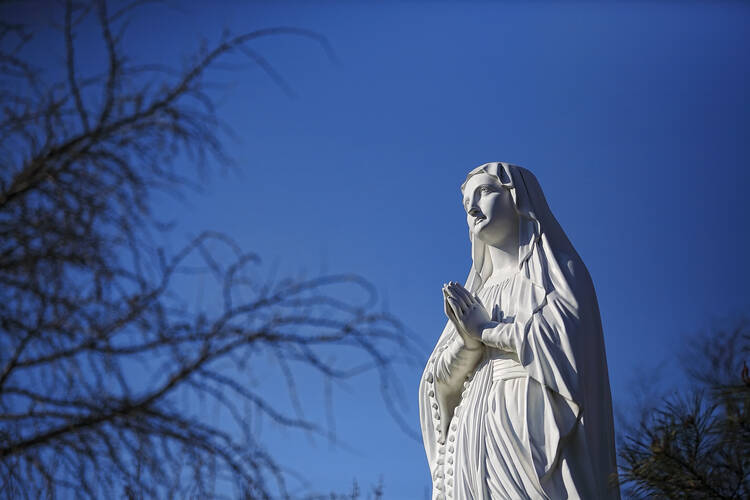VATICAN CITY (CNS) -- The Vatican has made public its 1974 decision denying the authenticity of Marian apparitions alleged to have occurred in Amsterdam between 1945 and 1959.
A statement released by the Dicastery for the Doctrine of the Faith July 11 revealed that a ruling of “constat de non supernauralitate” -- a judgment declaring that a phenomenon is not supernatural -- was reached in 1974 by the then-Sacred Congregation for the Doctrine of the Faith and approved by St. Paul VI regarding the alleged apparitions and revelations of “The Lady of All Nations.”
The statement noted that while the dicastery previously “did not make public decisions about alleged supernatural phenomena”, it published the 1974 ruling “in light of the persistent doubts raised about the alleged apparitions and revelations”.
The alleged apparitions began in 1945 when the 39-year-old Dutch secretary Ida Peerdeman claimed that Mary appeared to her in her Amsterdam home. The alleged apparitions continued, and Peerdeman said Mary asked to be known by the title “The Lady of All Nations” and be proclaimed as “co-redemptrix, mediatrix and advocate” as the final Marian dogma.
Pope Francis has explicitly said that Mary is not a co-redemptrix and that Christ is the one and only redeemer.
The dicastery’s statement came after it published new norms for discerning alleged supernatural phenomena in May. The document sought in part to enable the Catholic Church to more directly respond to questions that often surround alleged Marian apparitions.
Prior to the new norms, the dicastery’s formal decisions about alleged supernatural phenomena were only given to the bishop and not made publicly available.
In his written presentation of the new norms, Cardinal Víctor Manuel Fernández, dicastery prefect, cited a specific example of changing judgements on a phenomenon’s supernatural status, which corresponds with the alleged Amsterdam apparitions, as a reason for publishing the new norms.
Although the alleged Amsterdam apparitions were declared by the local bishop not to be supernatural in 1956, his successors changed that judgment and approved the supernatural origin of the apparitions. In 2020, Bishop Johannes Hendriks of Haarlem-Amsterdam issued a pastoral letter after consultation with the dicastery again prohibiting devotion to the apparitions and citing the 1974 Vatican ruling.
“In the period following this statement by the bishop, there was still sometimes a difference of opinion about the interpretation of the 1974 text,” the diocese of Haarlem-Amsterdam said in a statement published July 11. “The Dicastery for the Doctrine of the Faith therefore issued an announcement on July 11, 2024 to emphasize this once again.”
“Such complicated situations, which create confusion among the faithful, should always be avoided,” Cardinal Fernández wrote in his presentation of the dicastery’s document. “This can be accomplished by ensuring a quicker and clearer involvement of this Dicastery and by preventing the impression that the discernment process would be directed toward a declaration of ‘supernaturalness.’”
Rather than authenticate the supernatural status of a given phenomenon, the new norms orient the discernment of supernatural phenomena toward obtaining a “nihil obstat” -- a declaration that allows bishops to promote the pastoral value of an allegedly supernatural phenomenon without expressing certainty about its authenticity.








